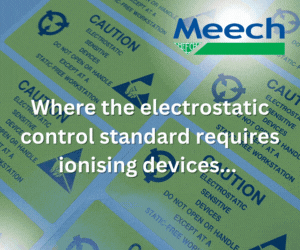Light combined with new surface kills MRSA
A new type of antimicrobial surface that kills MRSA being developed for hospitals
Scientists at the University of New Mexico in the US are working on a new type of antimicrobial surface that is inhospitable to MRSA but won't harm people or animals.
Presented at the science and technology-based AVS International Symposium and Exhibition in New Mexico on October 21, the scientists described how a new polymer-type material, "conjugated polyelectrolyte," is sterilised by the presence of regular fluorescent light. It has been shown to be effective at killing methicillin-resistant Staphylococcus aureus (MRSA).
The development opens up many potential applications, including the possibility of using these polymers as antibacterial countertops and operating tables.
Current sterilisation and disinfection techniques tend to be temporary and surface-specific, and require constant vigilance on the part of medical and support staff. Certain conjugated polyelectrolytes (CPEs) with arylene ethynylene repeat unit structure have been demonstrated to exhibit dark and light-activated antimicrobial activity.
The "light-activated" CPEs are inert toward bacteria in the absence of light, and display bacteria-killing activity with the addition of light.
Both in solution and anchored to a support, these polymers have been effective at killing Gram-negative bacteria, specifically Pseudomonas aeruginosa strain PAO1 and Cobetia marina. This light-activated antimicrobial activity enables their use in a wide range of potential applications.
Recent studies have shown these polymers do not appear to be toxic toward mammalian cells when the cells are exposed to the polymers in both light and dark conditions. Further work is underway to evaluate cytotoxicity at concentrations above the micromolar concentrations tested to date.
This opens up many potential applications, including the possibility of using these polymers as antibacterial countertops that may be sterilized using regular fluorescent lights.




